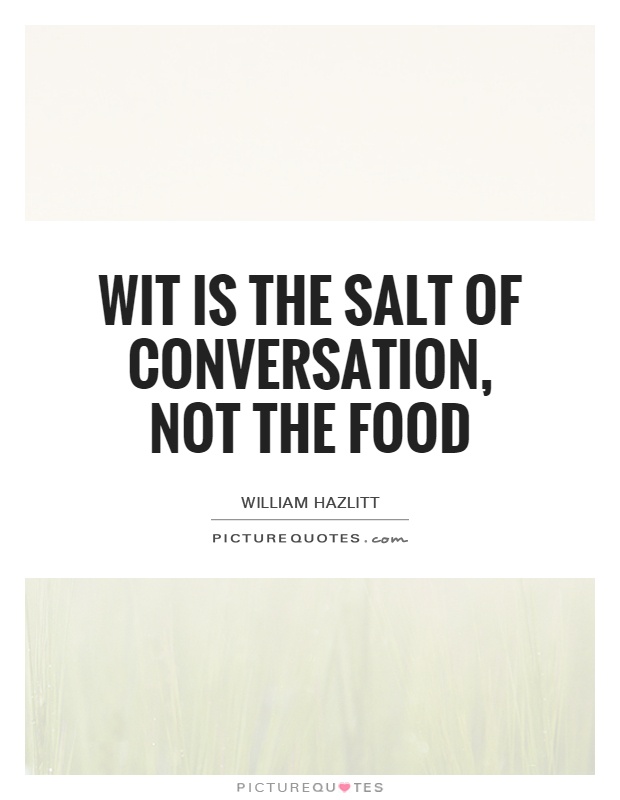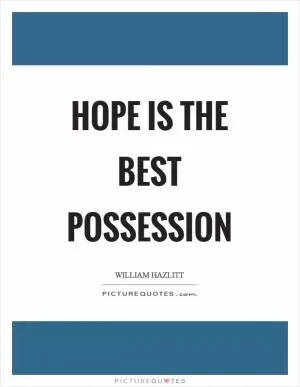Wit is the salt of conversation, not the food

Wit is the salt of conversation, not the food
William Hazlitt, a renowned English essayist and literary critic, once famously said, "Wit is the salt of conversation, not the food." This statement encapsulates the idea that while wit can add flavor and spice to a conversation, it cannot sustain it on its own. In other words, wit is an important element in communication, but it should not be relied upon as the sole substance of a meaningful exchange.Hazlitt's assertion speaks to the importance of balance in conversation. While wit can be entertaining and engaging, it is not enough to sustain a deep and meaningful dialogue. Wit, by its very nature, is often quick, clever, and humorous, but it does not necessarily delve into the deeper complexities of human experience or emotions. It is like the seasoning that enhances the flavor of a dish, but it cannot replace the nourishment provided by the main ingredients.
Hazlitt himself was known for his wit and sharp intellect, which he displayed in his essays and critiques of literature and society. His writing was characterized by its clever wordplay, keen observations, and incisive commentary. However, Hazlitt also had a deep understanding of human nature and a profound empathy for the struggles and passions that define the human experience. He recognized that true communication requires more than just clever banter or witty repartee.












 Friendship Quotes
Friendship Quotes Love Quotes
Love Quotes Life Quotes
Life Quotes Funny Quotes
Funny Quotes Motivational Quotes
Motivational Quotes Inspirational Quotes
Inspirational Quotes